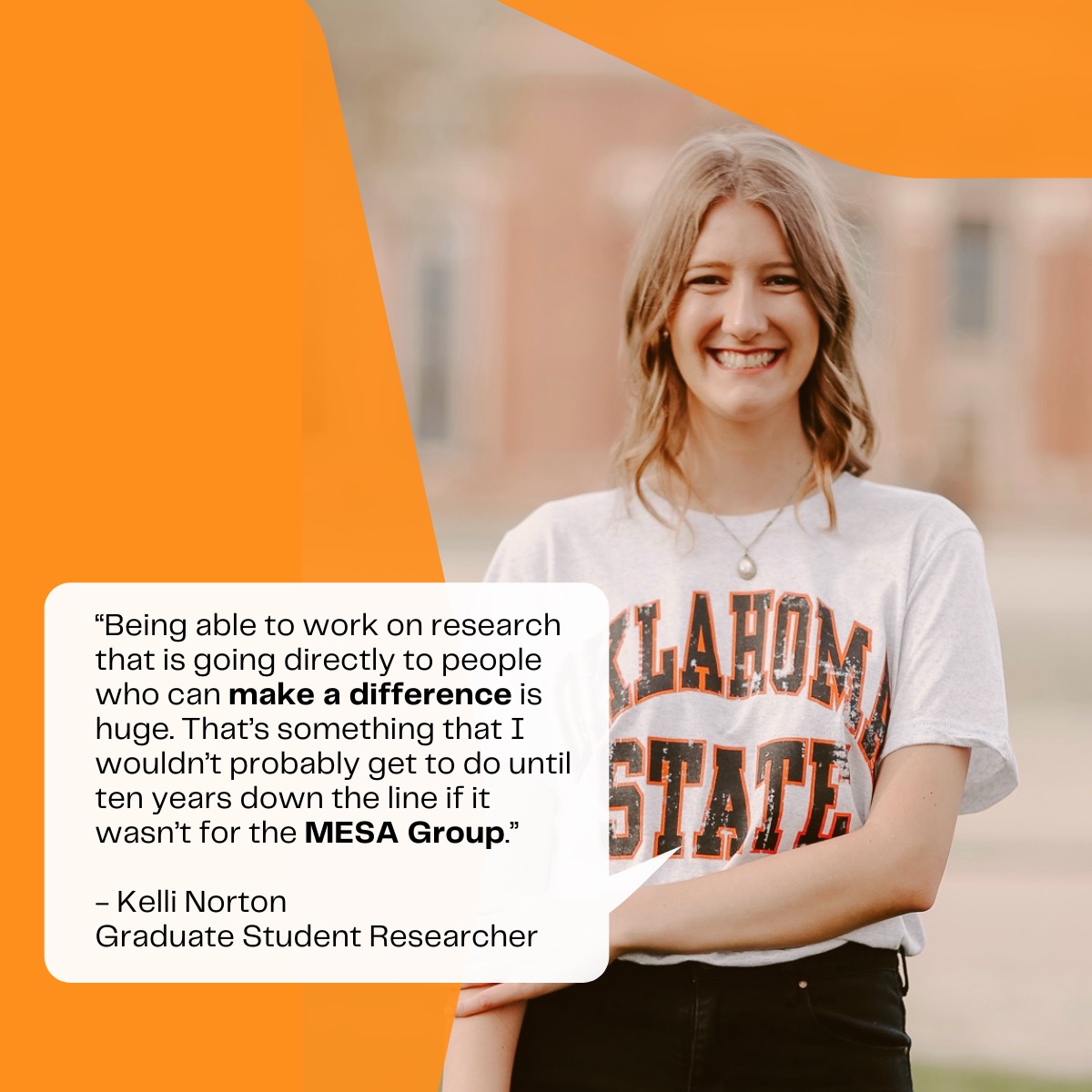Pursuing a career in research wasn’t on Kelli Norton’s agenda when she began her journey as a graduate student at Oklahoma State University’s School of Media and Strategic Communications.
Norton initially planned to use her undergraduate degree in plant biology to pursue a career in science journalism. However, she quickly discovered her passion for communication research while tackling data to shape migration-related policies with the Media Ecology and Strategic Analysis (MESA) Group.
 “I wanted to be able to give and further the knowledge in an area to help people, which is what drew me to the MESA Group,” said Norton. “The research they’re doing helps the here and now. It solves real word problems.”
“I wanted to be able to give and further the knowledge in an area to help people, which is what drew me to the MESA Group,” said Norton. “The research they’re doing helps the here and now. It solves real word problems.”
Founded in 2018, the MESA Group is an interdisciplinary research cohort that aims to address the mounting need for strategic narrative assessment as a tool for promoting cooperative assistance and creating community power. The group’s latest published work, which the U.S. Department of Homeland Security supported, identified tangible actions US officials can take to reframe the broader narratives concerning Northern Triangle migration around longer-term solutions and visions.
Norton first became familiar with the MESA Group during a graduate welcome reception. Although she had no research experience in the communication field, Norton was looking to get involved with ongoing research in a meaningful way. The MESA Group offered her a unique opportunity to cultivate her research skills and technical acumen.
“Being able to work on research that is going directly to people who can make a difference is huge,” Norton said. “That’s something that I wouldn’t probably get to do until ten years down the line if it wasn’t for the MESA Group.”
Now in her second semester as a graduate student, Norton has had ample opportunities to conduct research for MESA Group collaborators, such as the U.S. Department of Homeland Security, U.S. Department of Defense, and various branches of the Joint Forces, thanks to the MESA Group’s close relationship with these National agencies.
Dr. Skye Cooley, a co-founder of the MESA Group, explained that the main advantage for students who take on research positions with the MESA Group is the variety of experiences they get as part of the group.
“We do our best to open doors for our MESA interns so they can see what it is like to be a professional researcher serving and working for the US government,” Cooley said.
In addition to taking part in every phase of MESA Group research projects, student researchers also have access to a broad network of speakers' series and conferences across the Strategic Multi-layered Assessment group in the Pentagon and the Near East Policy Institute.
Graduate research opportunities with the MESA Group have also been instrumental for Ellie Melero, a first-year graduate student studying Mass Communications. She and Norton’s current research with the MESA group research focuses on understanding the role foreign news media plays to understand better how the world viewed the US 2016 presidential election.
“When we're done with the election study, we're going to write an article and try to get it published,” Melero said. “A published research article will be something really cool to have on my resume when I graduate.”
Experiences like Norton’s and Melero’s are far from unusual for both undergraduate and graduate students at Oklahoma State University’s School of Media and Strategic Communications. Oklahoma State University is committed to fostering research opportunities and partnerships that lead to scholastic achievement. As a result, there are numerous opportunities for students interested in pursuing varied research topics, including international communication, political advertising, nonprofit management, and more.
Undergraduate and graduate students who are interested in learning more about research opportunities with the MESA Group can visit mesagroup.okstate.edu to learn more.

